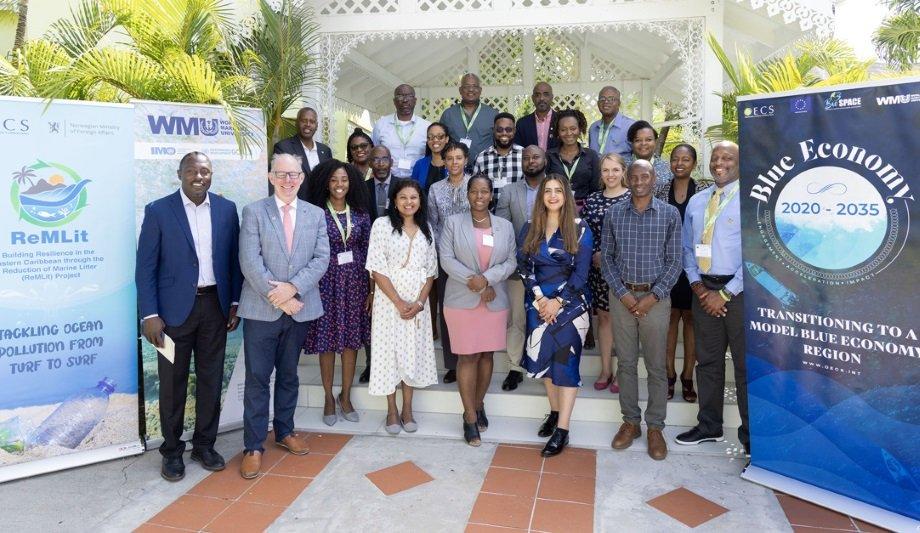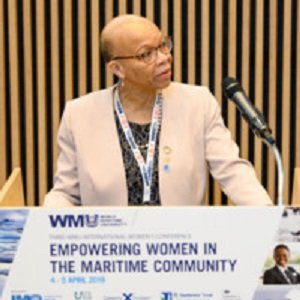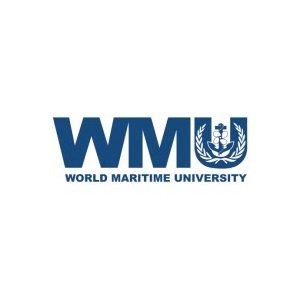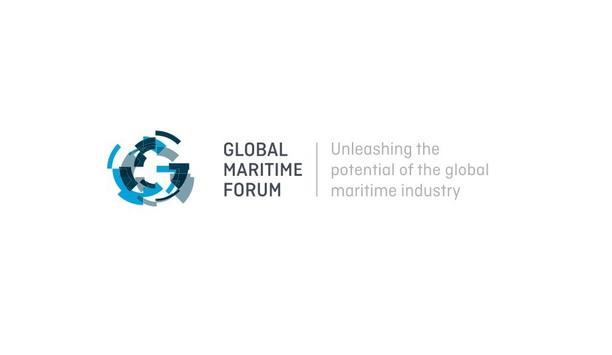The Organisation of Eastern Caribbean States (OECS), in collaboration with the World Maritime University (WMU), lead by the WMU – Sasakawa Global Ocean Institute team based in Malmö Sweden, conducted a Marine Spatial Planning (MSP) Workshop in Saint Lucia from April 3-5, 2023. The workshop provided decision makers in OECS Member States with an overview of the theoretical concepts and practical approaches of coastal and Marine Spatial Planning (MSP) in the region.
The programme was developed based on a range of existing planning frameworks and practical experiences and comprised modules which underpin the elements of ecosystem-based planning and management.
Ecosystem-based planning
Sarah Mahadeo, Research Fellow with the WMU under the WMU Closing the Circle Programme funded by The Nippon Foundation and a workshop facilitator said: “The workshop focused on key planning principles, application of systems thinking, and the important role that members of the OECS Ocean Governance Team (OGT) have as Blue Leaders in advancing efforts in their countries for the transition to a Sustainable Blue Economy. MSP is an iterative process, therefore it is critical that institutional capacities be strengthened and maintained over time. The hope is that we can continue working with the region towards this goal.”
Marine Spatial Planning is an important component of the overall framework
Marine Spatial Planning is an important component of the overall framework for guiding the transition to a sustainable Blue Economy in the Eastern Caribbean. Through application of an ecosystem-based approach to ocean management, they can aim to promote principles of sustainability and equity, as well as drive economic development for diversification of our economies.
Driving economic development
With the aim of sustainably harnessing the potential of vast maritime jurisdictions, MSP can be a tool for increasing investor confidence by introducing transparency and predictability, which can act as a catalyst for investment in both traditional and emerging maritime sectors.
Dr. Aleke Stöfen-O'Brien, Assistant Professor at WMU, Principal Investigator (PI) for the Closing the Circle Programme and a workshop facilitator was pleased with its outcome and was optimistic about the future of the Caribbean’s Blue Economy. She stated, “The highlight was definitely the spirit and engagement of the participants. They entered the training with a spirit of curiosity and their knowledge is absolutely world class.”
Emerging maritime sectors
The 3-day session concluded with the Blue Economy Roundtable at the Harbor Club hotel
“I was impressed by the different solutions they suggested and the collaborative approaches they pursued. It was clear that MSP is seen as one of the integral milestones of achieving a sustainable blue economy in the region and that there is already so much knowledge available. We are looking forward to seeing actions and measures taken in response to the many ideas and solutions developed in the course of the training by the participants.”
The 3-day session concluded with the Blue Economy Roundtable at the Harbor Club hotel, where a Memorandum of Understanding was signed between the OECS and the World Maritime University. OECS Director General, Dr. Didacus Jules and President of the World Maritime University, Dr. Cleopatra Doumbia-Henry, were pleased to sign this agreement, which seeks to develop capacity in the region for the advancement of the OECS Blue Economy.
Sustainable blue economy
Several OECS Ministers were present at the ceremony, including Hon. Jullan Defore, Minister of State in the Ministry of Agriculture, Fisheries, Blue and Green Economy in Dominica, Hon. Carlos James, Minister of Tourism, Civil Aviation, Sustainable Development and Culture in St. Vincent and the Grenadines, Hon. Quincia Gumbs-Marie, Minister for Economic Development, Investment, Commerce, Information Technology and Natural Resources in Anguilla, and Hon. Shawn Edwards, Minister for Education, Sustainable Development, Innovation, Science, Technology and Vocational Training in Saint Lucia.
Developing the Blue Economy includes addressing the problem of plastic pollution
Developing the Blue Economy includes addressing the problem of plastic pollution, and the OECS has found a strategic partner in the Norwegian Government. “Norway looks to the OECS and its member states as strategic partners in promoting and managing a sustainable blue economy. Our ocean plays an essential – and too often an unrecognised – role in our lives,” stated Camilla Røssaak, Counsellor, Royal Norwegian Embassy in Havana, who addressed the Blue Economy Roundtable virtually.
Forward-thinking solutions
Dr. Cleopatra Doumbia-Henry – a Dominican National – was thankful for the OECS partnership and their joint efforts to better the lives of people in the region. In her address, she stated: “In all of this, the OECS Secretariat has been a fantastic partner in organising and in convening this very important event today. It reminds me of the beneficial impact that a meeting in person can create, and a common understanding and vision for the future and what it holds, not just for humanity but particularly for small island developing countries.”
“It is well known that our small island states are barometers of our time and we are committed to continue to develop needs-based and forward-thinking solutions to these islands and beyond.” The Marine Spatial Planning Workshop and Blue Economy Roundtable was supported by The Nippon Foundation of Japan as a deliverable of the Closing the Circle Programme, the Government of Norway through the ReMLit Project, and the EU-funded BioSPACE Project.














